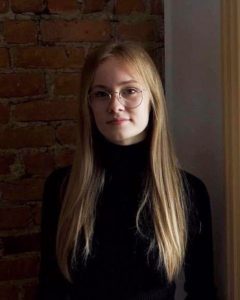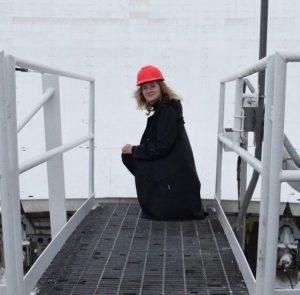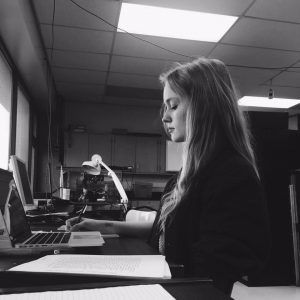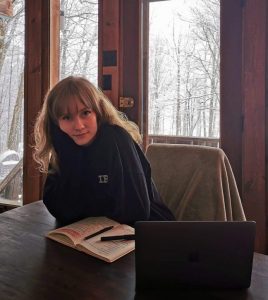Amanda is a second year PhD student at the University of Toronto, specializing in Astrostatistics. Before U of T, Amanda received an Honours Mathematics and Physics degree from McGill University, and held summer research positions at NASA JPL and the University of Kyoto.
How did you first become interested in Astronomy and Astrophysics?
I feel a great sense of wonder and awe gazing into the night sky, and I have ever since I was a child. But I must admit, I was actually interested in the physical sciences more broadly initially, since – like most of the graduate students here – I excelled in math and physics in grade school. I think my path was cemented in astrophysics specifically by all the inspiring women I had as role models and mentors during my undergraduate degree. I could really see myself being happy and supported in this field.
Can you tell us a little bit about your specific field of research?
I am most interested in transient astrophysics. Lately I’ve been working on learning more about mysterious “Fast Radio Bursts”, or FRBs. FRBs are super bright radio flashes from distant galaxies, and astronomers do not know what is causing them yet. I am a part of a great team on the Canadian experiment called CHIME/FRB which has discovered hundreds of new FRBs. So I’m interested in harnessing the statistical power of that large sample to learn more about FRBs as well as use them as probes of the plasma they travel through.
What’s the most exciting thing about your research?
Right now I am trying to measure the extent of the plasma in the Milky Way using FRBs. It’s so cool to be starting to resolve the ‘edge’ of our Galaxy, which is too distant for us to ever visit, using these enigmatic signals that were emitted millions of years ago. And all of this is being accomplished using a telescope in BC and doing analysis from my living room. More generally though I think the most exciting part is waking up and knowing that at any moment we could make a new discovery or put together another piece of the FRB puzzle. The feeling among colleagues when something game-changing is found is truly one of the best parts of this job.
What do you hope will be your next step, professionally?
I hope to go on to be an astrophysicist, the typical next step after a PhD is to be a post-doctoral researcher. It has always been my dream to make a career out of discovery, learning, and teaching. As for this moment, I’m focusing on passing all my qualifying exams and publishing my first research paper.




